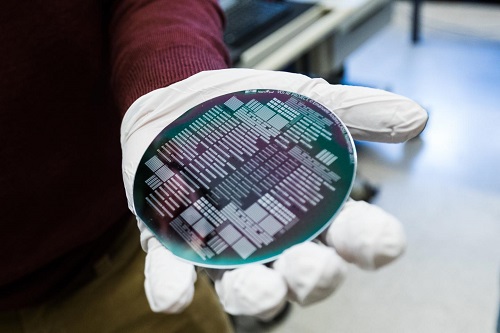|
NOVIDADES
First came the switch. Then the transistor. Now another innovation stands to revolutionize the way we control the flow of electrons through a circuit: vanadium dioxide (VO2). A key characteristic of this compound is that it behaves as an insulator at room temperature but as a conductor at temperatures above 68°C. This behavior - also known as metal-insulator transition - is being studied in an ambitious EU Horizon 2020 project called Phase-Change Switch. EPFL was chosen to coordinate the project following a challenging selection process. The project will last until 2020 and has been granted €3.9 million of EU funding. Due to the array of high-potential applications that could come out of this new technology, the project has attracted two major companies - Thales of France and the Swiss branch of IBM Research - as well as other universities, including Max-Planck-Gesellschaft in Germany and Cambridge University in the UK. Gesellschaft für Angewandte Mikro- und Optoelektronik (AMO GmbH), a spin-off of Aachen University in Germany, is also taking part in the research.  This is a vanadium dioxide chip developed at EPFL's NANOLAB. Credit: EPFL / Jamani Caillet
Even more interesting findings from the Nanolab - especially for radiofrequency applications - were published in IEEE Access on 2 February 2018. For the first time ever, scientists were able to make ultra-compact, modulable frequency filters. Their technology also uses VO2 and phase-change switches, and is particularly effective in the frequency range crucial for space communication systems (the Ka band, with programmable frequency modulation between 28.2 and 35 GHz). Ecole Polytechnique Fédérale de Lausanne. Posted: Feb 05, 2018. Nota do Scientific Editor: E. A. Casu, A. A. Muller, M. Fernandez-Bolanos, A. Fumarola, A. Krammer, A. Schuler and A. M. Ionescu. Vanadium Oxide bandstop tunable filter for Ka frequency bands based on a novel reconfigurable spiral shape defected ground plane CPW. IEEE Access, 2018, 1, DOI: 10.1109/ACCESS.2018.2795463. |
|||||||||||||||||||||||||